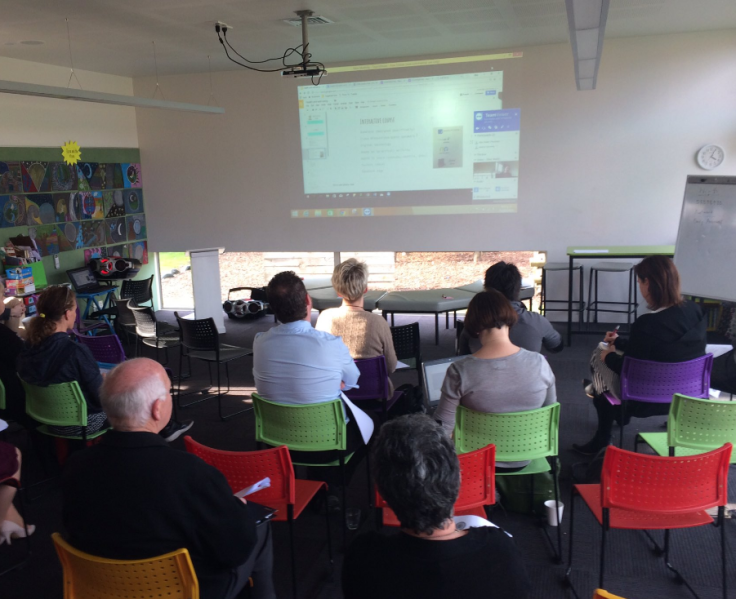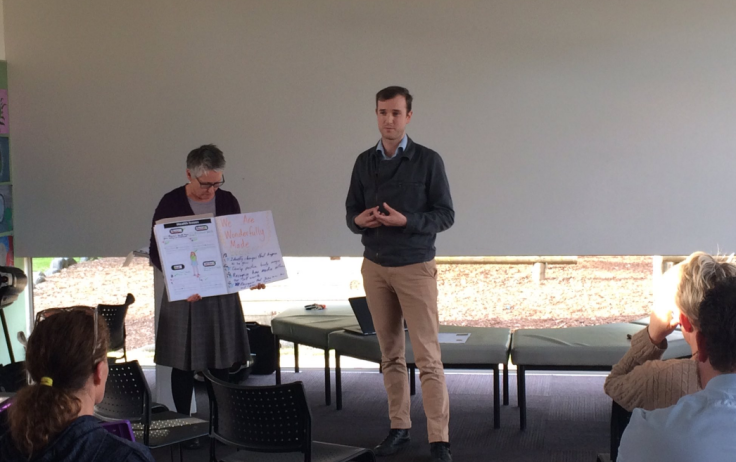In 2016, we sat down and re frame how we deliver professional development to teachers in the Christchurch Diocese. Instead of the typical stand and deliver methodology that operates at the remember/ understand level, we wanted to move into the analyse/ create level of Bloom's Taxonomy. It is important that we deliver programmes that meet the needs of our busy teachers and allow them time to chew over content and how this can shift their teaching practice. As Sergiovanni (1992) suggests, the idea collaborative workplace would allow teachers to work, debate and problem solve together and share successes as well as challenges. This is what we wanted for our teachers and we investigated what platforms could deliver this.
We decided on Moodle which focuses on providing an online environment of their own, a voice and an agency. Here are the three ways you can use Moodle four your teaching practice outlined by Stephen Lowe (2017):
Teacher-centric ways you can use Moodle: Create content for the students to read; publish a list of useful links to get more reading; post a video of yourself talking in an authoritative way about your subject; create a quiz so the students can self-assess their progress; post homework exercises for students to do over the weekend. This is using Moodle in a teacher- centric manner.
Learner-centric ways you can use Moodle: Set up a forum where students can ask questions, let the other students answer first, let them up vote good answers, only intervene if you need to; set up an empty glossary and invite the students to explain concepts in their own words, solicit feedback through the comments; encourage the uploading of short video clips made by students as they reflect on their learning journey; spend some time showing the students how a wiki works and familiarising them with markup language, then encourage them to create their own revision resource; invite them to co-construct a revision quiz. That’s using Moodle to disrupt.
Here are some truly radical ways to use Moodle: Flip the online space – make all the students teachers and all the teachers students, switch roles, take teach-back to a whole new level; encourage your students to open free accounts on H5P and embed their interactives into the Moodle space; suggest each small study group creates a whole Moodle course around their project for the other students to access, don’t tell them how to do it just watch and learn from what they do. Now as a modern teacher all you have to do is follow Sugata Mitra’s Self Organised Learning Environments and make like a granny. Login to the Moodle and use the comments and forums they will have set up to appraise and support.
We wanted our online space to be learner centred so that teachers could share their ideas and collective wisdom. Three ideas underpinned this process for our platform:
- Read/ Watch an aspect of content
- Do something with it via a forum or activity
- Share your ideas and receive feedback on them from others on the programme.
For the 2017 year, we have had over 200 teachers from our 35 schools completed a professional learning paper. We have had the privilege of going into schools and see the wonderful ways in which teachers apply their learning to their classroom practice. We are always rethinking the design and development of our papers and are implementing some of the strategies mentioned by Lowe (2017).









